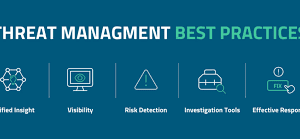A learning management system is a web-based application used for documenting, recording, tracking, and analyzing the learning and training behavior of employees.
So what is a learning management system in an enterprise?
The enterprise learning management system is a cloud-based application that is designed to deliver, track, report, and manage learning and training activities. The use of LMS in an enterprise makes the daily functioning of an enterprise easy. Learn LMS helps you with easy learning and training programs for your employees.
What does an ELM do?
With an enterprise learning management system, you can train your employees, and schedule meetings. You can manage records of the learning prospectus that you have made or planned for your employees.
ELM being a cloud-based application, can be hosted on the web and used from anywhere by anyone. You get the liberty of free accessibility. All training schedules and procedures that you save for your employees will be saved on the cloud which means you can update them at easy convenience. This means that every course completion and all the training history will be saved.
Benefits of using a learning management system in an enterprise:
-
Easy accessibility
You can easily access the learning management system from anywhere at any time. Imagine your employee having some issue with the training program and wanting to clear their doubt. But, since they are working from home, they will not be able to access the training if your organization doesn’t use an LMS.
-
Cost-efficiency
A learning management system helps you to save costs for both, the organization and your employees. Organizations will not have to spend money on resources, including setting up a place for their employees to be trained or bearing the traveling expense of the trainers.
-
Responsive design
A responsive design allows your course content to be consumed seamlessly across different devices. This means, your employees will be able to consume the training content on their personal computers or laptops, or even their smartphones and tablets. This will boost the accessibility of your training materials.
-
Time-saving
LMS in an enterprise helps you to save time. This happens by letting employees consume pre-recorded training sessions. This way, by just recording these sessions once, you can save several hours of time that would have otherwise been spent delivering said training sessions. Similarly, if employees are able to engage with training on their mobile devices, their training hours will not be restricted to working hours. They can, for instance, watch a couple of training videos on their way to work. This way, even the completion time for the course will be shortened.
-
Flexibility
Every learner has their own pace of learning and understanding. A Learning management system facilitates you with the flexibility to learn at your own pace and at your own timing.
-
Easy tracking
LMS helps you to easily track your employees’ performance. A learning management system in an enterprise facilitates you to record and analyze your employees’ performance based on their working capabilities.
-
More Engagement
These days, learning management systems come loaded with features that boost learner engagement. Features like gamification enable learning administrators to foster healthy competition among the learners with game-like elements like points, badges, and leaderboards.
Objectives Of Using An LMS In An Enterprise:
-
Learning Content Management
Learning content management is the most basic yet important function of an LMS. It includes:
- Storing all of the training content in a single repository and ensuring that it is available to the relevant people in the organization at all times.
- Making sure that the right people have access to the content that is relevant to them.
- Providing the L&D administrators to easily update training material.
-
Learning Process Administration
This is another major function that an LMS is expected to serve in an enterprise. Administration of learning processes may include:
- Enabling multiple learners to access the LMS at the same time.
- Enabling multi-device access for the learners.
- Tracking of learning and training activities of employees.
- Scheduling meetings, training sessions, and certification.
- Sending automated notifications for learners and trainers.
- Assessment of employees’ performance.
- Creating the certificate on course completion and issuance of certification.
- Gathering feedback on learners’ experience.
- Immersive learning such as virtual reality and augmented reality.
-
Reporting and Analytics
A learning management system helps you to analyze and report the employees’ interactions and progress with your training material. It helps in:
- Creating customized reports for learning and development teams and managers, and human resource management.
- It facilitates scheduling report delivery.
- LMS facilitates analysis of skill gaps with respect to the current training made available by the organization.
- A learning management system helps the organization to record employee behavior and performance and record it for future performance evaluations.
-
Extended Enterprise LMS
A learning management system helps enterprises provide training to not just employees, but to partners, vendors, and many other stakeholders. An LMS does all this by:
- Providing the sub-portals for employee and partner training.
- Facilitating the creation of AI-based personalized learning paths. LMS uses an intelligent algorithm to understand the learners’ behavior and learning needs and provides content for learning and training accordingly.
- Learning management systems helps with integrating e-commerce platforms to sell or share course that enables customers to achieve “success” with the products that they are purchasing.
-
Data Security
A learning management system helps keep your training material secure. This is done using a variety of features:
- It provides the learner with multiple-factor authentication.
- Most modern LMS provide access to learners’ records only after seeking permission from an authorized person.
- Most modern LMS also keep online learning data backups in case of any technical faults.
-
Integration of social features
Modern Learning management systems come loaded with social learning features that enable you to:
- Build online learning communities
- Create online forums, discussion boards, charts, etc
Conclusion
A learning Management System is important for any organization to deliver training in an engaging manner and to monitor the learners’ behavior. The main objective of a learning management system is to manage the learning process or training process of an organization.



































